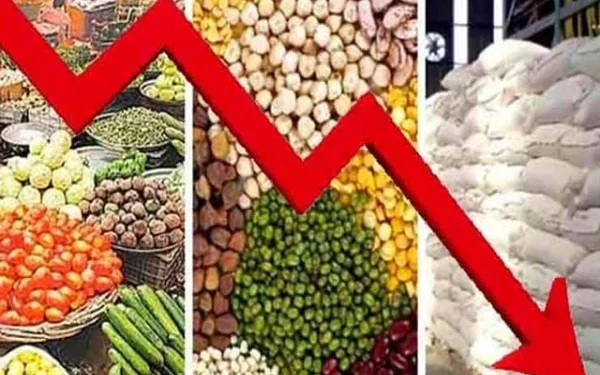Islamabad: Pakistan’s inflation rate has dropped to its lowest level in a decade. According to data, the inflation rate in January was 2.4 percent, increasing pressure on the State Bank to reduce interest rates to single digits.
The Economic Coordination Committee of the Cabinet, chaired by Federal Finance Minister Muhammad Aurangzeb, expressed concern over the increase in prices of sugar, vegetables and edible oil, although this increase was the lowest since November 2015.
According to a press release issued, concern was expressed in the meeting over the rising prices of commodities. The ECC directed the Ministry of Industries and Production and the Ministry of National Food Security and Research to cooperate with the National Price Monitoring Committee and ensure maintenance of strategic reserves of wheat, sugar, pulses and submit its report to the committee within two weeks.
The committee also directed to take steps to ensure uninterrupted supply of commodities at reasonable prices during Ramadan. The ECC expressed satisfaction over the ongoing decline in the Sensitive Price Index (SPI) over the past few weeks. However, it stressed that necessary steps should be taken to pass on the effects of the decline in core inflation, average inflation, and price reduction trends to the common man.
On the other hand, the Bureau of Statistics said on Monday that the inflation rate increased by 2.4 percent in January 2025 compared to January 2024, the lowest increase in the inflation rate since November 2015.
At that time, the inflation rate was 2.7 percent, thus the difference between the key policy rate and the inflation rate has increased again to 9.6 percent. It should be noted that for the last time, the State Bank has reduced the interest rate by one percent to 12 percent. The government and the State Bank are hesitant to reduce the interest rate in proportion to inflation, and do not want to accelerate the pace of economic growth due to economic fault lines.
It should be noted that until the interest rate falls to single digits, business activities will not accelerate. The government has set an inflation target of 12 percent for the current fiscal year, while the IMF has estimated 9.5 percent. However, the inflation rate during the first half of the year was 6.5 percent, which is half of the government’s annual target.
Core inflation, which is calculated excluding energy and food, has also declined, falling to 7.8% in cities and 10.4% in rural areas. Average core inflation is about 3% below the policy rate, giving the central bank room to cut rates.

























